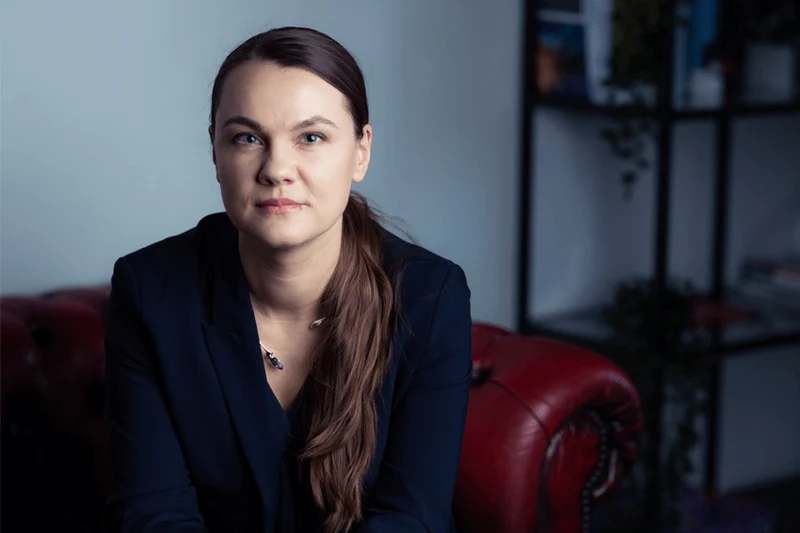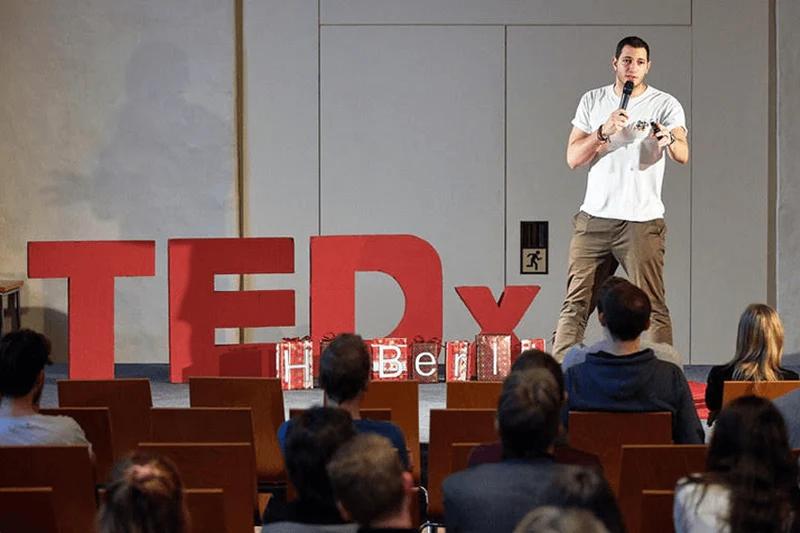15 Experts Share Their Insights on Navigating the New Normal with a Distributed and Remote Workforce
For years the tech and software development space has dabbled into hiring talent remotely. The COVID-19 pandemic, however, forced pretty much every company on the planet to become distributed with a remote workforce overnight. Finally, tools like Slack, Meet, Zoom, and Jira rolled off the tongue of the baby boomers and Generation X.
This transition may have been in the works at a snail pace prior to the pandemic, but the pandemic supercharged and accelerated the remote movement. As a result, companies, teams, and people learned to stay connected and work seamlessly no matter where they were located around the globe.
Now, we were curious as to how key stakeholders and decision-makers felt and maneuvered some of the challenges related to the new normal of a distributed and remote workforce.
We sat down with 15 experts in their respective industries to learn just what their experience has been on some of the questions we have been pondering about at Pangea.ai.
Q: Has your approach to hiring changed now that the workforce is distributed and remote?
#1 - Karen K. Burns I CEO & Co-Founder at Fyma I Linkedin
Co-Founder and CEO of Fyma, a computer vision SaaS platform that turns cameras into predictive sensors using cognitive AI. With 15+ years of experience in ICT and Business Development, Karen is a regular speaker on strategy, business development, and management topics at conferences and events: Google Baltics, Nordic Testing Days (keynotes); TTÜ Cyber Conference, Digigirls with Telia, Frankfurt Mobikon, Telia VUNK accelerator, and many others.
“Before the pandemic, we didn’t really consider hiring remotely, but ever since we have been obliged to work as a distributed team, we are open to the idea. There is an undeniable learning curve when transitioning from a traditional to a remote work environment, and it has definitely worked for us. With international travel at a virtual standstill, we might not be relocating anyone physically for some time, but onboarding a healthy pipeline of international talent has become vital for us. By the same idea, if we’re hiring and onboarding people remotely anyway, does it really matter where they are in the world? Nowadays, we are trying to expand into the Americas and are looking at our first US hire, something we never thought about doing before.”

Karen from Fyma 📸
#2 - Yang Zou I Co-founder at Freachly I Linkedin
Yang is the co-founder of Alphin (formerly Freachly), a digital platform for local businesses to grow their online marketing presence. Now with 80+ team members from all over the world, they are focused on revolutionizing local marketing through software solutions. Now, he is busy as an angel investor and limited partner at Speedinvest in Berlin.
“The traditional way of managing a team doesn’t apply anymore given that everything is remote now. There’s now an element of “is this person a self-starter?” when we’re looking to hire new personnel. We want them to look at the big picture beyond just the day’s goals or so and look to add material value in the long term.
Micromanagement is out of the question, so we need to be able to trust the people we hire now to be able to seek out how to add value on their own.”
#3 - Alexey Marchenko I CEO at Avalon Chase I Linkedin
Alexey is an entrepreneur and international talent search expert focused on direct search and headhunting for senior positions in tech. Besides his consulting business, Alex acts as a pro-bono mentor helping fresh graduates learn more about different career paths and make the right first steps.
“There is a whole new hiring and recruitment landscape now. Most senior tech talents are currently working remotely, and almost every new senior tech role offers a full-time remote option. As a result, it has become increasingly harder to attract talents for startups and mid-size growing companies alike.
This recruitment challenge quickly led to the rapid expansion of hiring geography, especially in Europe and North America. We changed candidate search strategy for our clients accordingly, and it allowed us to save time by placing candidates from Seattle and Boston to a Denver-based startup”

Alexey from Avalon Chase 📸
Q: How did Covid-19 change the way your organisation operates its workforce?
#4 - Alvaro Rojas I Co-Founder at Hyrise Academy I Linkedin
Alvaro began his career as a consultant between Madrid and LA. After successfully launching and selling a beverage company in the US, he joined now Europe's largest tech Bootcamp as an early employee. Together with his team of 15 people, they developed the career services and corporate partnerships necessary to place 1,000s of students. Passionate about education, startups, and sales, he's now focused on changing education with Hyrise Academy to give motivated people the opportunity to work in careers they love.
“Our company was launched during the COVID-19 pandemic, so even if it hasn't changed how we operate, it has reinforced our decision to launch a remote-first company based on three core pillars: coordination, communication, and culture.
Coordination refers to the ability of your company to work together to achieve common objectives. For team coordination to work in a remote environment, it should run like clockwork. Tools like Asana or ClickUp can be practical, but they will get you nowhere without a clear, solid process behind them. Every team member should have no doubts about the company’s mission, the current priorities, role and responsibility, and how their performance is measured.
The next factor would be communication. Effective teamwork starts and ends with communication, and—especially in a remote environment—designing a transparent communication system is crucial from the beginning. This ensures employees can interact seamlessly and effectively with crystal clear knowledge of who they should talk to (and when) for any given purpose.
Last but not least, culture. As Ben Horowitz famously put it: “Your culture is how your company makes decisions when you’re not there”. And in a remote environment—you’re never there. So, you need a strong culture that fosters engagement and sustains performance in the long term by generating trust through shared values and customs. As it can be a challenge for remote teams to develop emotional closeness, you need to focus on fostering an informal space where people within the company can let their guard down and connect by recognizing each other as human beings, understand how they feel, and share insights into their personal lives.”

Alvaro from Hyrise Academy 📸
#5 - Daniel Dalen I Chief of Staff at $SYA I Owner at Daniel Dalen Design | Linkedin
A freelancer since he was young, Daniel has been exploring the worlds of visual design, marketing, and software development for years. After mastering the Chinese language and moving to Hong Kong, he has started several companies, including Dalen Design, Hoppa, and Pabel, before launching his own cryptocurrency - $SYA - where he is the Chief of Staff.
“Remote working is often associated with less structure when it comes to day-to-day operations. But we’ve learned during this period that it's quite the opposite.
When your team is distributed and uses dozens of different tools, information gets scattered, siloed, lost. Covid has taught us that remote work demands radical transparency, so people don't duplicate work or go in the wrong direction. This is when you require to bring good structure through software, in my opinion, by having everything from KPIs to quality standards documented in one source of truth (E.g., Notion).
Distributed teams need to be extremely clear on the roles and responsibilities of each team member. This structure is what ensures the success of the team over time.”

Daniel from $SYA 📸
#6 - Senad Santic I Co-Founder at ZenDev I Linkedin
The founder of three companies by the time he was 28, Senad is passionate about startups and software development. A programmer with a big interest in technology, he classifies himself more as a generalist driven by the creative process of creating great products.
“Like everybody, early on, we had to get used to remote work for a few months. But in our case, after those months, we gave people the option to go back to the office if they wish, and 80% of our workforce did. So now our office is more like a hub.. you can come if you wish, but we believe that in the long run, to keep the culture that we want to have, we will always have to have people that work primarily from the office at least a few days every week.”
Q: Should compensation for remote team members be adapted based on their location?
#7 - David Czaniecki I Founder & Ex-CEO at Wundertax I Linkedin
David founded Wundertax in 2015 after completing his studies and realizing how hard it was for students to create specialized tax declarations. Now his Berlin company has helped hundreds of students, ex-pats, and workers navigate the complex German tax bureaucracy.
“It is a difficult time for everyone. The original workforce will retain their agreed-upon salaries in our company, whether they’re stuck in lockdown in Europe or vacationing through Bali. Our ultimate concern is getting the job done, no matter where you’re physically located.
But perhaps in the long term, we might look to hire support staff outside where we’re based. I think the pandemic made it clear that outsourcing or hiring globally can be done by any company, regardless of the size. Determining location-based salaries is a complex and time-consuming process, and if your calculations aren't consistent and transparent, it can be easy for wage inequalities to emerge.”
#8 - Lamine Cheloufi I Founder & CEO at Flooz.link I Ex-N26 / Klarna / Welab I Forbes 30u30 I Linkedin
From N26 to Klarna, Lamine has led design & digital product teams into delivering high-quality outcomes at buzz-lightyear speed. An entrepreneur at heart, he is currently the founder of Flooz.link, a community platform that empowers individuals to facilitate and monetize their creations.
“We believe in hiring globally at Flooz to tap into the very best talent for a given role. We firmly hire for impact and attitude rather than accolades or something as insignificant such as location.
When it comes to compensation, we like to be fair and just whilst being mindful of the cost of living at a given location. Typically, we pay above market value to attract the best talent. For example, we hired engineers in Lagos, Nigeria, and compensated them Nx the market value for the respective roles. However, the same compensation from European or American eyes may seem like peanuts due to the cost of living. Now, ultimately what matters is that the compensation drove strong demand in the sourcing process with the very best talent applying for the role. Upon employment, we have seen satisfaction for this aspect to be very high.
In summary, we believe that we should pay above market rate to attract the best talent, but it factors in the location where the team member is based.”

Lamine from Flooz.link 📸
#9 - Yasmin Wateler I Global Head of HR, Strategic Talent Acquisition I Co-Founder at Discover Your Leadership I Ex-ZF / Vodafone / Deutsche Bank I Linkedin
Yasmin has over 20+ years of experience successfully leading and operating global and regional HR functions across automotive, telecommunications, and financial industries. Working together with various stakeholders, her impeccable track record enables her to navigate people’s agenda across heterogeneous markets, ultimately driving business performance with baby steps changes along the way even in high resistance markets.
“Before the pandemic, by and large, companies paid out salaries based on the employees’ primary location. Now, ‘location’ is flexible with remote working becoming normal for employees. Even though it’s a complex issue due to the ongoing pandemic, companies should adjust and adapt.
Companies should first evaluate the pros and cons at the core interest of all stakeholders. Definitely, an evolving and fluid process in the time to come as there is no silver bullet yet. As a note, governments should also positively support the new changes to compensate for any downsides for all parties by creating a pragmatic short-term and long-term solution.
Piggybacking on the fact that remote working is increasingly becoming the norm, companies should invest even more in technology-driven products, services, and solutions for sourcing and hiring. The pandemic has uncovered exciting opportunities for companies to achieve high productivity and attain high ROI with the talent pool is now global.
With this in mind, I strongly recommend companies of any size in any market to revisit and evaluate sourcing and hiring platforms replacing the traditional hiring process. And, allow the possibility of remote working if it is appropriate. These changes in the mindset will enable companies to only outperform in the following areas:
- Sourcing of top talents with global reach
- Recruiting top-quality candidates with complex skills sets, educational and experiences
- Boost speed in filling up positions through sophisticated and dynamic platforms
- Offering competitive, creative and equitable compensation & benefits
- Optimization E2E hiring processes i.e. speed, lean, and simplicity
- Increase diversity on maltitude dimensions with minimum effort
- Contributing to climate sustainability
I hope remote work will be widely used, adapted, and championed by companies. I am excited to see where the wind blows.”

Yasmin from Discover Your Leadership 📸
Q: What are the challenges you associate with a distributed and remote workforce?
#10 - Maiuran Loganathan I CEO at Unicorns I Linkedin
A full-stack engineer and serial entrepreneur from Oslo, Norway, Maiuran is currently obsessed with becoming the best entrepreneur he can be by improving his feedback-to-iteration time. In his spare time, he runs ultramarathons, plays the piano, and watches motivational clips of Kobe Bryant.
“On one hand, early-stage operations and meeting the customer to figure out the pain points that are hard to map out when you are not physically meeting the customer are one of our biggest obstacles. On the other hand, our team is now tasked with evaluating the entire customer journey, including all existing pain points, and look for opportunities to introduce or refine online experiences.
Since we are a development-driven company, we are missing the hacker-house coding vibe you get when you have an excellent coding flow with your peers and lose track of time. So figuring out a good time for these types of meetings with our colleagues scattered across different cities and time zones is a constant battle full of compromises.”
#11 - Kian Schreiber I Co-Founder at Stealth Venture I Linkedin
Kian Schreiber is the co-founder of fintech startup Xtech, specializing in processing blockchain payments, and Flatnut Ventures, a digital consultancy supporting digital transformation and creating digital products - today, he is working on something new and exciting in stealth mode.
“When everyone is working remotely, team members sometimes start to feel isolated and lonely. This impacts team performance as much as employees’ wellbeing, so be sure to stay connected with your remote workers on a human level as well as a professional one. Motivation is a much trickier factor to achieve as interpersonal contact is not as strong when remote.
Having acknowledged this, we make the effort to meet our remote development team in person regularly (if restrictions permit). The combined output is a lot higher after we visit since we have the time to align and sync through brainstorming and solving problems together.”

Kian from a newly minted Stealth Venture 📸
#12 - Christian Gorgas I Co-Founder and CEO at Loona Gym I Linkedin
Christian is a serial entrepreneur who is leading one of the fastest-growing e-commerce startups in Europe which he founded during the height of the pandemic to enable workouts at the comfort of your own home.
“Now more than ever, we want our employees to feel connected to us, to each other, to the team goals, and the company’s purpose. Reminding your employees that just because you’re not together physically, it doesn’t mean you’re not still stronger as a whole is quite a challenge, particularly for a marketing-heavy, early-stage startup like ourselves. We need to keep an eye on our team’s working dynamics to keep productivity up and running, especially when the office setup is not entirely straightforward for everyone.
Another point would be that seniors are more efficient working remotely than our junior employees because they can prioritize and organize themselves better than the junior members while not relying so heavily on feedback from other members. Again, this became obvious in our setup as juniors would naturally learn from interacting within the office through their day-to-day activities."
Q: In your opinion, what are things that leaders can do to create a good remote culture?
#13 - Hakob Astabatsyan I Co-founder & CEO at LinksUp I Linkedin
A startup founder based in Berlin, Hakob is always eager to get to know like-minded people who are passionate about entrepreneurship. His company, LinksUp, offers a fast and simple way to create a beautiful and engaging professional page to sell your time, events, or digital products.
“First, having the proper technical infrastructure in place to allow secure access to the services and information needed to support remote workers is critical. Thanks to evolving technologies, most of our employees were already well-versed in communicating within different locations through cloud computing while having the right access controls, sufficient network capacity, etc. This has allowed us to conduct our business activities both in the office and remotely.
The rest is a management issue. All employees and employers should comprehend that the safety and job security of each person are paramount. A good organization should have an appropriate hierarchy and meetings schedule that involve the employees at all levels and convey a strong sense of belongingness to an organization and community.”
#14 - Joscha Hofferbert I Co-founder at Vision Health Pioneers I Linkedin
Joscha has been in the health space around Berlin for a long time. He is currently leading the ‘Vision Health Pioneers’ health accelerator, and ‘Hacking Health Berlin’, an accelerator that helps to transform ideas into action.
“Back in the days when we saw our team members regularly, it helped to maintain a solid working culture. Nowadays, when everyone is doing home office, time needs to be spent with colleagues besides the operating hours. We have organized a virtual wine tasting within our organization, which has been a lot of fun and has brought the team closer together even though everyone just stayed at home.
Good and clear communication is even more critical than ever as you don’t have conversations with colleagues in between. Therefore, check-ins and follow-ups through tools like Slack, Zoom, etc., with your remote colleagues can be an asset in facilitating productivity, managing expectations, and eliminating miscommunication.
Last but not least, trust is an essential aspect as you can not control your colleagues that much anymore. So you have to find people you can trust that they get their stuff done, but you also need to give your colleagues the option to have more flexibility in their working style and hours.”

Joscha from Vision Health Pioneers 📸
#15 - Niklas Radner I Co-founder and business at Nelly I Linkedin
Niklas decided this year to revolutionize the medical industry in Germany after realizing that 80% of patient registration and billing processes in the country are paper-based. He founded Nelly to try to free medical practices of paperwork and administrative work by digitizing and streamlining their processes.
“To foster an excellent remote culture, I believe few organisational hacks can help. First, ensure leaders of the organisation have regular one-on-one’s with each team member on a bi-weekly, if not a weekly time-interval.
Secondly, for the leaders themselves, it is critical not to lead teams that are too large. In my opinion, having eight people per team with a clear accountability and competency lead should be the limit for an ideal model. What’s more, do set aside time to have team events in person.
Last but not least, we have found that workshops twice a year are very important to stay aligned internally; it boosts motivation and team spirit in a remote environment.”
Well, there you have it! Thank you to all our experts for taking the time to offer us their hard-fought insights.
Clearly, Covid-19 changed the face of work (and the world) in many ways, but the full extent of these changes remains to be seen. Even as lockdowns ease and people return back to the office, more and more companies are looking beyond their own local backyard for hiring. Corona’s Box has been opened, and there’s no putting this rabbit back in the hat.
And while the experts certainly agree that managing a remote team has its challenges, it's clear that with good leadership and clear communication (supported by the myriad communication platforms around), remote and distributed hiring is becoming an increasingly important tool in any company’s toolbox.
Now, here comes the plug you have been waiting for (ha 🔌) - if you are thinking about hiring remotely to find the best talent in software development, why not take a look at the pre-vetted companies at Pangea.ai? We’ve made it our mission to find the best remote software development companies on the planet - and there is a 93% chance we can find a perfect match for your needs!
